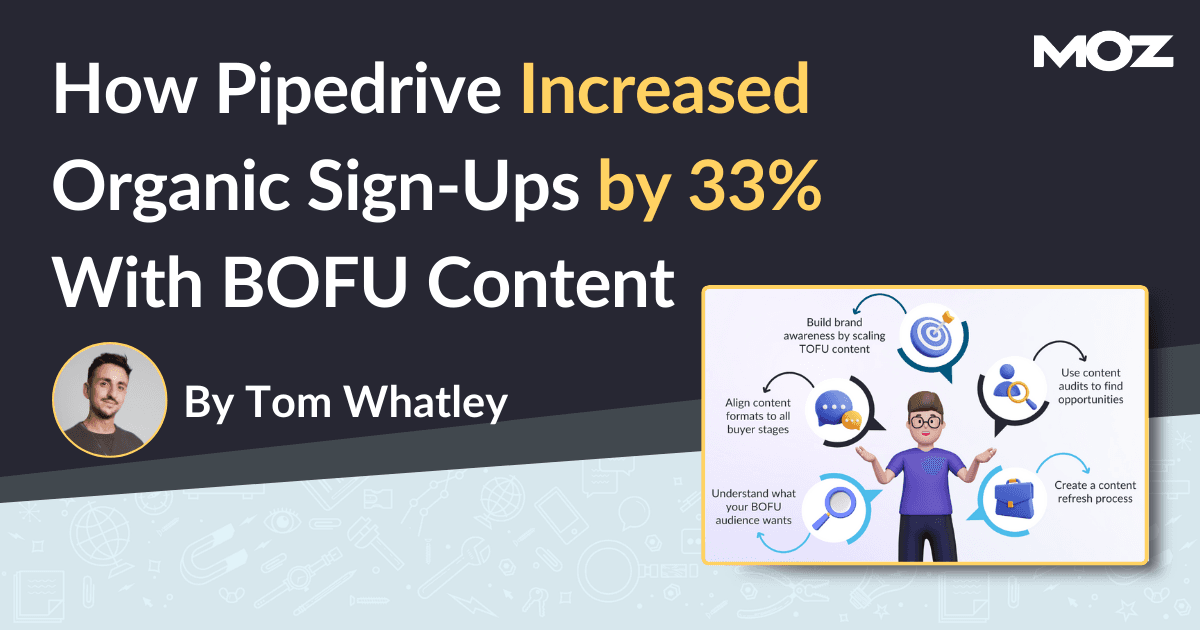Content refreshes are a large part of Pipedrive’s SEO strategy.
There are many ways to optimize content, but here’s the process we’ve found most impactful at Grizzle:
Use data-driven tools to improve relevancy and inject important themes
I rely on tools like Moz and Clearscope to show which themes Google prioritizes for specific topics. This helps me understand what’s missing and what updates are necessary to keep the content relevant.
For example, when refreshing a 2017 sales tools listicle, the data might show that search intent shifted to AI sales tools—something irrelevant back then. I’d weave in a new section and update the rest of the content to fit the current landscape.
Increase content quality and value while fulfilling information gain
Not all content needs the same level of attention, so I use this system to prioritize:
Editorial: Minor tweaks like fixing typos, adding links, or improving readability.
Updates: Substantial changes such as adding sections, updating stats, and optimizing for new keywords.
Rewrites: Overhauling the content completely to align with SEO best practices.
Track and measure the impact of my optimization efforts
After every refresh, I make sure to track performance:
-
Traffic and engagement: I monitor page views, bounce rates, and session duration.
-
Keyword rankings: I check if the rankings for target keywords improved.
-
Conversion rates: I evaluate if the refreshed content drives more conversions, like sign-ups or downloads.



